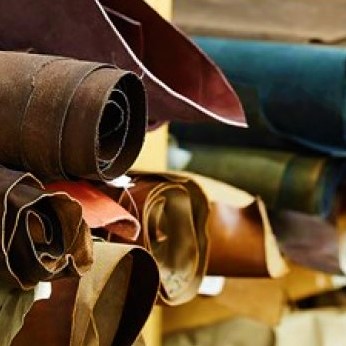Introduction About Leather
Leather has been around for hundreds of years, and today it is often used to make useful items such as belts, handbags, shoes and sofas. It’s not always like that! Historically, leather has been used in other creative and interesting ways.
For example, during the Neolithic period, skins were used to make beautiful animal and plant designs, which functioned as blinding helmets. Leather was also highly decorative when it was used for book bindings before the invention of the printing press, when paper was a valuable commodity that had to be carefully crafted by hand. . Examples of pieces using the techniques described in this article can still be found in European museums today.
leather History
Unknown the start of the leather leather. The interests of the animals to a minimum of 400,000, but the skins of the leather is not like the leather with a beautiful skin. It seems that the first treated leather products appeared in 5000 BC. AD, and artisans create these ancient leathers by tanning the skins in the sun, softening them with animal fat, salting and smoking to preserve them. It was only about 400 BC.
AD and the Egyptians discovered how to dye leather with vegetable tannins. Tannins are natural astringent compounds that inhibit the spread of collagen in animal skin
With the fall of the Roman Empire, which had served as the main center of leather in ancient times, the art of leather making was preserved in Arabia. By the end of the Middle Ages, Arab tanners had become so famous for their work that to this day, some types of leather are named after major Arab tanneries such as Morocco and Cordoba, Spain (n ‘under Arab rule for centuries).
At the beginning of the Renaissance, Europe regained its status as an industrial and commercial center and, in the 17th and 18th centuries, Italy established itself as the first center of leather products. In addition to gaining popularity as a textile, leather also became a desirable material for firearms during the war-torn Renaissance.
During the Age of Enlightenment, the use of leather for clothing and accessories became increasingly popular, and this cloth became the material used to bind books. The Industrial Revolution saw the introduction of automatic tanning machines, and at the end of the 19th century, tanners developed the first method of obtaining tanning using chromium, which became the main ingredient Leather is doing things today.
About Leather industry


The leather industry is a global manufacturing unit that produces manufactured, processed, and finished leather goods. Leather is used to make leather. Skins are used to damage by food company. These animals are used for skins, after broken, with one’s jobs and well, the economically renewable arrow. Leather is one of the most traded products in the world, with the value of leather and leather exports exceeding $5 billion annually.
Key Facts About Leather industry in India
India is the second largest producer of leather clothing and footwear. It represents about 13% of the world’s leather and leather production. The Indian leather industry includes important sectors such as footwear, leather products and garments, finished leather, textiles and clothing. Uttar Pradesh and Maharashtra are major manufacturing and exporting centers for leather, leather products and footwear in India. There is a huge demand for leather products in the Indian market. A significant increase in the demand for leather goods in the domestic market is attributed to other industries such as the fashion industry, furniture and design industry, and the automobile industry. There is a huge demand for fashion accessories like bags, handbags, shoes and even clothes.
The main reasons for the growth and growth of the leather industry are-
Cows and Cows – Leather in India comes mostly from buffaloes and goats. As a major animal husbandry country, India has many resources available for leather production
Skilled labor required for leather industry – India has skilled labor required for the industry. Therefore, the leather industry is now progressing with the contribution of skilled and skilled workers.
Indian Leather Industry
The leather garment industry enjoys a prominent place in the leather sector of India. The product range of leather clothing includes jackets, long coats, skirts, shirts, pants/shorts, children’s clothing, motorcycle jackets, coats and industrial leather clothing. The main export destination for leather garments from India is Germany.
Tanning is a process that transforms a putrescible hide into a hide, which usually contains tannin, an acidic chemical compound that prevents rotting and often provides color. With the capacity of tanning and finishing to process 1192 million hides and skins every year spread in different parts of the country, most of them are processed according to modern life, India’s ability to support what is its importance and infrastructure is clear. . .
To ensure domestic availability of raw materials, the Indian government has allowed free import of hides and skins from anywhere in the world. It is attractive for overseas manufacturers who plan to move their production base from expensive sites to cheaper locations.
There are more than 2,000 leather factories in India. Most of them are scattered in small numbers in residential areas all over India especially in West Bengal, Tamil Nadu, Maharashtra and Uttar Pradesh. It is predicted that the leather industry in India will generate about $7 billion in 2011. No wonder India is one of the largest exporters of leather to France and the UK.

